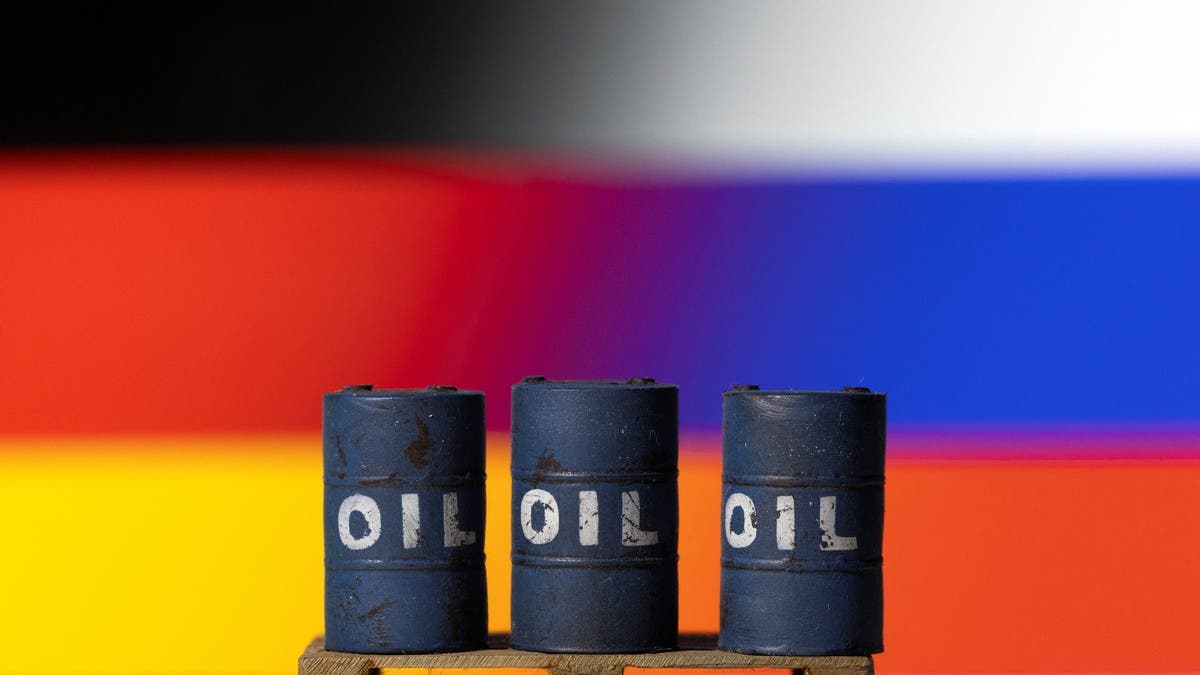German officials are quietly preparing for any sudden halt in Russian gas supplies with an emergency package that could include taking control of critical firms, three people familiar with the matter told Reuters.
The preparations being led by the Ministry for Economic Affairs show the heightened state of alert about supplies of the gas that powers Europe's biggest economy and is critical for the production of steel, plastics and cars.
Russian gas accounted for 55 percent of Germany's imports last year and Berlin has come under pressure to unwind a business relationship that critics says is helping to fund Russia's war in Ukraine.
Germany has said it wants to wean itself off Russian supplies but expects to be largely reliant on Moscow for gas until the middle of 2024.
It remains unclear whether an abrupt halt would happen and the officials said Germany wanted to avert an escalation, such as by backing a European gas embargo, having already supported sanctions against Moscow on coal and oil.
For the latest headlines, follow our Google News channel online or via the app.
But they now fear Russia could cut off gas flows unilaterally and want to be able to cope if it does.
While a broad framework is in place and the government is determined to help, the details of how it will put the plan into action are now being thrashed out, the officials said.
The government would back granting further loans and guarantees to prop up energy firms, helping them cope with soaring prices, and could take critical companies, such as refineries, under its wing, the three officials said.
Asked for comment on the measures, Germany's economy ministry pointed to statements by its head, Vice-Chancellor Robert Habeck, that the country had made "intense efforts" in recent weeks to reduce its use of Russian energy.
Last month, Berlin approved a legal change to allow it take control of energy companies as a last resort.
It is now discussing how it could use the measure in practice, such as by taking control of the PCK refinery operated by Russia's Rosneft in Schwedt near Poland, two of the people said. It accounts for most of Germany's remaining Russian oil imports and could be hit by a European Union oil embargo.
Rosneft declined to comment on any possible German action.
Energy nationalisation?
One of the people said the nationalisation of energy companies was an option being considered but it would have to be weighed carefully and justified on the grounds of securing energy supplies rather than to punish Russia.
Germany could also take stakes in other companies, said two people familiar with the matter. In 2018, it made a similar move when state development bank KfW bought 20 percent of energy network operator 50Hertz to fend off an offer from China's State Grid.
The final government emergency package has not yet been finalised. One of the people cautioned that taking minority stakes in companies and intervention at the Schwedt refinery remained under discussion but had not been decided.
Officials are also examining how KfW can alleviate pressure on critical companies by supporting them with further loans, or emergency credit lines they could use if energy prices soar and trigger costly margin calls on their market positions.
Earlier this year, KfW helped German energy firm Uniper , EnBW's gas division VNG and coal-fired power plant operator Leag cope with volatility in energy markets.
KfW declined to comment on which companies it had helped.
Germany is also examining how it would ration gas in an emergency. Its regulator is considering whether to give industry priority over households, which would be a reversal of the current policy where businesses would be cut off first.
The discussions are unfolding against the backdrop of war in Ukraine and an increasingly charged stand-off between Moscow and Brussels, which has backed tough sanctions to isolate Russia.
Russian President Vladimir Putin told his armed forces at a parade on Monday they were fighting for their country but offered no clues as to how long their assault on Ukraine, which the Kremlin calls a special military operation, would last.
Economic spiral
Russia's Gazprom halted gas exports to Poland and Bulgaria last month after they refused to pay in roubles but the Kremlin has rejected accusations by the European Commission that Moscow was using natural gas supplies as blackmail.
The Kremlin and Gazprom have repeatedly said that Russia was a reliable energy supplier.
The Kremlin and Gazprom did not immediately respond to a request for comment about the reliability of supply.
After hesitantly backing sanctions on coal and oil, Berlin also now wants to draw a line, four officials said.
They are concerned that curbing gas as well could send prices rocketing, allowing Moscow to cash in on sales outside the EU and thus still failing to drain its war chest.
The officials said Germany was reaching the limit of sanctions it could impose without triggering an economic spiral, with even those in the governing coalition wholeheartedly behind penalising Moscow wary of imposing sanctions on gas.
Berlin has also been swayed by captains of German industry, including chief executives of its biggest listed companies and representatives of firms with ties to Russia, who have regularly met and lobbied officials not to ban gas, one person with knowledge of the matter said.
Company executives have told Berlin they are preparing to pare back Russian energy ties in any event, but appealed to the government not to force them to do so immediately, said a second person familiar with those discussions.
Read more:
Bulgaria says will veto EU oil sanctions on Russia if it does not get derogation
G7 countries pledge to stop importing Russian oil: White House
EU edges towards oil sanctions on Russia, no deal yet


 World3 years ago
World3 years ago
 World3 years ago
World3 years ago
 Business1 year ago
Business1 year ago
 Entertainment8 years ago
Entertainment8 years ago
 World8 years ago
World8 years ago
 Entertainment8 years ago
Entertainment8 years ago




